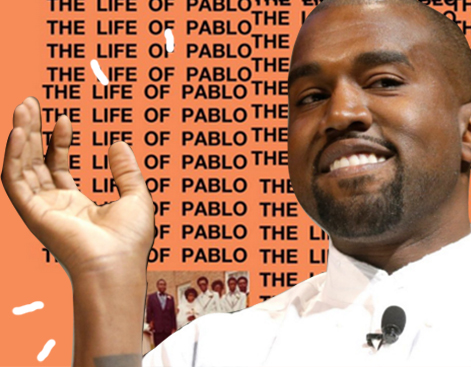The Life of Pablo is, in a sense, a Kanye West album from the year 2016. The same Kanye West who fathers children with Kim Kardashian. The same Kanye West who had hundreds of people lining up on Murray St in our very Perth the other week hoping for a shot at buying shoes he designed while he was on the other side of the planet, like, luxuriating or something. As tantalizing as it is to try decrying him, West is the most far-reaching musical pop culture figure the digital generation has seen. You already know this: his defining attribute is the way he takes raw and – compared to his award-show peers – human pride in his cultural vantage point. For most of us, that part-fabricated, all-celebrity iconic soup marinates his entire identity, and unfortunately for The Life of Pablo, any alternative interpretation you could try scooping out of his actual music still stinks of it.
Let’s think back to My Beautiful Dark Twisted Fantasy. At the time of release it seemed like the most memetic, context-dependent piece of music nameable; but underneath the timely exterior was some seriously smart and appealing pop songwriting, sampling and textural stuff. I mean, your dad could probably enjoy it if you didn’t tell him it was Kanye. Every song was a complete, realised statement regardless of the overtly topical power-tripping it dealt with. But on Pablo the power trip isn’t the subject of the thing, it’s the whole thing. Yeezus was ostensibly this, yes – but at least there West was playing to an audience, triumphantly redefining his celebrity image one step further with each meticulously crafted song. Pablo only ever leaves Kanye’s impenetrable kinesphere for quick stints; tantric stunners like “Waves”, “Ultralight Beam” and “Real Friends” are basically the only signs pointing towards some kind of emotional goal. The rest is a cacophony of post-gospel melodrama, obtuse chopping and screwing, obtuse singing about screwing, and little else.
The most telling track here is “30 Hours”, which had it been given the proper nurturing might have turned out to be one of West’s most profound moments. It appears as a cool song in every sense. A filtered vocal sample provides a strong enough backbone to begin with. The loops may be unwavering and unpolished but Kanye paces himself right, even conjuring up Andre 3000 seemingly at will only to have him mumble the chorus. But then the second half falls into West just hyping himself up over how nice the instrumental turned out, staggering around his words like Morty Smith and eventually receiving and answering a phone call. That would have actually happened in the studio. You can practically see the waveform selections and record button on the screen in front of him. In that moment, Kanye is really no different to DJ Khaled, dropping phrases like ‘Madison Square Garden’ and ‘Ultralight beams flowing’ like he’s holding his phone to his face, exclaiming into Snapchat from a treadmill. He’s talking to himself; reminding himself of something, some feeling, but he might be the only one who’s ever had it.
The Life of Pablo is not really an album. It’s an impromptu DVD commentary track about music that Kanye West hasn’t actually made. Maybe if released hot on the trail of Yeezus this kind of unabashedly meta self-reflection would make sense, but it’s been three years. This is the really weird thing about Kanye: he’d like us all to think that he’s producing work operating on some kind of deeper emotional level than any of his contemporaries, when the only readable subject matter in his music is (besides walled-off introspective proverb, tiresome misogyny and graphic depictions of fucking) his own career. The music is now its own emotional core. If West was to eventually put his remarkable production skills towards making something truly removed from celebrity current affairs then his boisterous claims about his own cultural provisions might feel justified instead of just quirky.
After Pablo, Kanye’s present innovation is his shameless inversion of the roles of the art and artist in his designated cultural space. Kanye West: The Idea is the art we are sold and his album is ambassador to its surroundings; the retrospective interviews, the news journalism and the social media uproar. In order to get any sliver of a reaction out of this music one would need only to think that’s a good thing.
Words by Harry Manson

